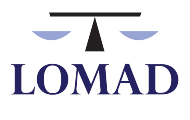There have been several cases recently where Carpal Tunnel Syndrome (“CTS”) was determined by providers as causally related to the accident of record in the file. At first, this determination of causal relationship seemed pretty straight forward, but a “deep dive” into the file made it clear that the issue of causal relationship was not so clear-cut.
In one case, the treating physician determined causally related CTS by attributing the claimant’s condition to damage in the median nerve from the accident of record. A review of the file uncovered an associated MRI report which noted a “ganglion cyst” located along a particular anatomical pathway in the wrist area. As such, we did some research, and were able to find medical journal literature supporting the phenomenon of ganglion cysts in this area causing compression of the median nerve – so as to cause Carpal Tunnel Syndrome. As such, we could argue that the unrelated ganglion cyst was a preexisting condition which likely caused the CTS.
In another file, the claimant raised bilateral carpal tunnel syndrome as consequential to a broken left humerus she had sustained in a fall, in the accident of record. During testimony, the treating provider explained that the claimant’s “extensive treatment” of the left shoulder had led to swelling in the left upper extremity – which then led to nerve damage – which then led to her carpal tunnel on the left side. He further theorized that carpal tunnel on the right side resulted from resultant overuse of her right hand – based on the left sided carpal tunnel syndrome damaging her left hand. During deposition, however, we were able to get the provider to concede that the claimant’s “extensive treatment,” which he had blamed for causing the swelling in her left upper extremity, had involved treatment (including radiation) for unrelated tumors in the shoulder. As such, we ended up with a reasonably strong argument that the claimant had not sufficiently shown any of the claimant’s carpal tunnel syndrome to be causally related.
As such, a diagnosis of CTS should be looked at from all angles, as one might be surprised at the different theories of causation one might uncover.

